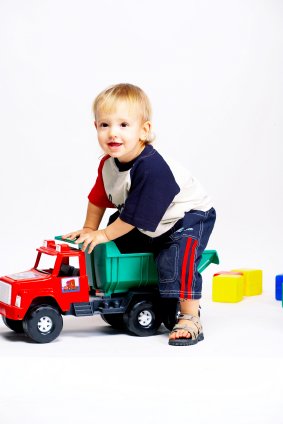There has never been a time, at least in recent memory, when our children were more vulnerable to the threat of strangers. Whether online or in rural areas and big cities, we are facing a pandemic of kidnappings; online pedophiles, and what appears to be an attack on our children. It is vital, then, that you talk to your kids about strangers.
Some pre-K schools have already begun the practice of teaching children what to do when confronted by strangers. This has to be reinforced at home as well. Because children are so trusting, it is all the more important to explain to them what to do in case they are approached by someone they do not know. Here are some of the things you can tell them:
- Never talk to a stranger.
- Never accept anything from a stranger.
- Never get into a car with someone you don’t know.
- If a stranger looks nice, it doesn’t mean they are.
- When walking home from school, pair up with one or two friends.
- Go straight home; do not delay by stopping somewhere with friends.
- If a stranger comes up to you, run and scream.
- Tell a teacher if anyone tried to bother you on your way to school.
- Don’t stray from the playground.
- If a stranger says “Your mommy told me to pick you up from school,” don’t believe the person. Run away, find a teacher, and report it.
- Walk home from school using the same route every day.
- If mommy is picking you up, wait for her inside the school’s main office.
- If a stranger approaches you in a car and wants you to get in, run the OPPOSITE direction of the car and yell for help.
Online predators should be every parents concern. For children who use the internet; there are parental controls which can be used to block out certain sites. Check on your kids’ internet use; what sites they’ve visited; chat rooms or other areas online. Every child needs to be aware of the dangers of the internet. While most kids are using computers in schools and at home, it is important they know there are bad people in this world; that strangers go online specifically to find young girls and boys. Alert them to the fact that while they may think they are talking to a person of a similar age, the person could really be an adult.
In addition, every state affords your child the ability to receive an identification card. The identification card includes the child’s age, sex, height, weight, birthday, hair/eye color, current address, phone, parental information, and a picture and fingerprints of your child. This is vital in finding children who are abducted.
There was a time when trust was a tenet we all lived by. Today, unfortunately, we have the sad duty to tell our kids they can’t trust everyone, sometimes adults in their own families. How do you tell a child, without frightening them, there are people in this world whose sole aim is to harm them? It’s a delicate balance, and as difficult as it may be, every parent should talk to their child about the dangers out there.









2 Comments